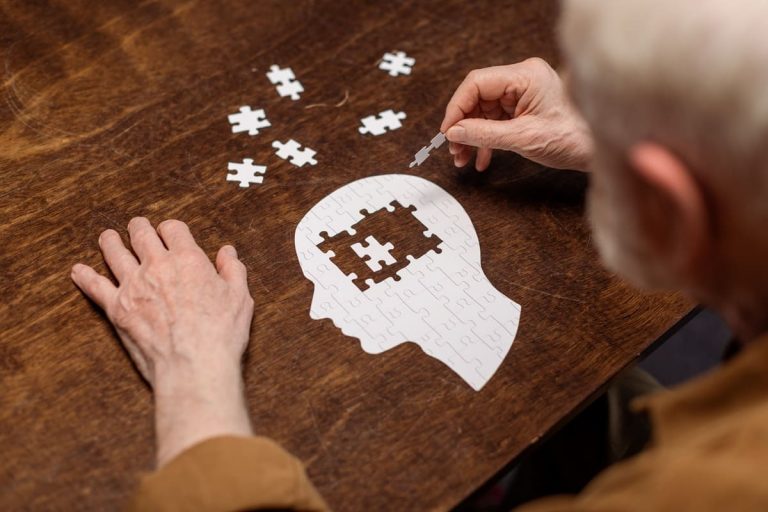A common belief is that Alzheimer’s disease and dementia refer to the same disease; however, dementia is a blanket term describing several cognitive conditions. Even though Alzheimer’s disease contributes to 60-80% of dementia cases, other types of dementia affect individuals in different ways. Our team is exploring these other forms, their symptoms, and what you can expect from each.
Acknowledging that dementia may be a confusing topic to navigate, our Chattanooga memory care community is breaking it down into easier-to-digest information. Our Rockbridge Oaks team is sharing the characteristics of the common types of dementia and the symptoms you can expect from each.
Vascular Dementia
Vascular dementia is the second most common type of dementia, caused by reduced blood supply to the brain, depriving it of oxygen and other nutrients. This type of dementia can come on suddenly, provoked by a stroke, or a person may experience a series of small strokes that gradually cause damage.
The most frequent symptoms of vascular dementia include trouble with memory, thinking, speaking, balance difficulties, and physical stroke symptoms such as a sudden headache or paralysis on one side of the body.
The most common cause of vascular dementia is small vessel disease, which is the narrowing of the blood vessels in the brain. A person with this condition could experience a gradual loss of cognitive abilities, including slowed thinking and problem-solving skills. However, a person with lifestyle habits that promote a good blood supply, such as regular exercise, not smoking, and eating a healthy diet, could help to reduce the risk of vascular dementia.
Dementia with Lewy Bodies
Dementia with Lewy bodies (DLB), or Lewy body dementia, is a common type of dementia linked to Alzheimer’s and Parkinson’s disease. What differentiates Lewy body dementia from these other conditions is the development of tiny clumps of proteins (Lewy bodies) inside nerve cells. Lewy bodies prevent cells from communicating properly by disrupting the chemical messengers between them, eventually causing them to die.
This type of dementia can affect any part of the brain, causing different symptoms such as difficulties with movement, deterioration in physical abilities, problems with concentration and alertness, disruptive sleep, and visual hallucinations of people or animals. Symptoms tend to get worse as more nerve cells are destroyed.
How can you help a family member with DLB?
- Develop strategies to strengthen memory, such as writing in a journal or using memory aids
- During hallucinations, reassure your family member that you are there to support them rather than tell them that what they are seeing is not real
- Encourage exercise during the day and reduce daytime napping to help with sleep disturbances
- Seek support from health professionals such as neurologists, occupational therapists, and physiotherapists to help your family member maintain their mobility
Frontotemporal Dementia
Unlike other types of dementia, frontotemporal dementia (FTD) is more likely to affect younger individuals, usually under 65 years old. Because this form of dementia affects the parts of the brain dedicated to language and behavior, the frontal and temporal lobes, individuals living with this condition may experience changes in personality, emotional response, and difficulty understanding language.
These changes in behavior can be challenging for the person experiencing them and their family members, so it is helpful to remember that such behaviors are only a result of this condition. Your family member may not realize their behavior is unusual or inappropriate, so engaging in enjoyable activities and hobbies can sometimes help alleviate changes.
If your family member develops language difficulties, simplify verbal speech by using shorter sentences and more common words. Additionally, pay attention to their body language and learn new nonverbal ways of communicating.
It can be overwhelming when a family member receives a dementia diagnosis, but educating yourself about their condition equips you with the information you need to make educated decisions regarding their care.
Our Chattanooga memory care community offers exceptional care and support to individuals living with all types of dementia. We invite you to visit our website or contact a member of our dedicated team to learn more about what we offer and how we can help enhance your family member’s lifestyle.


